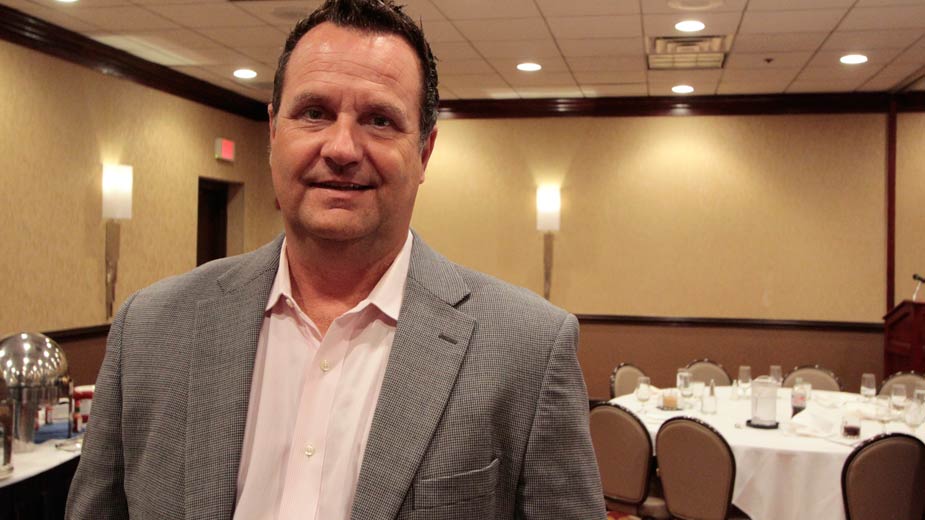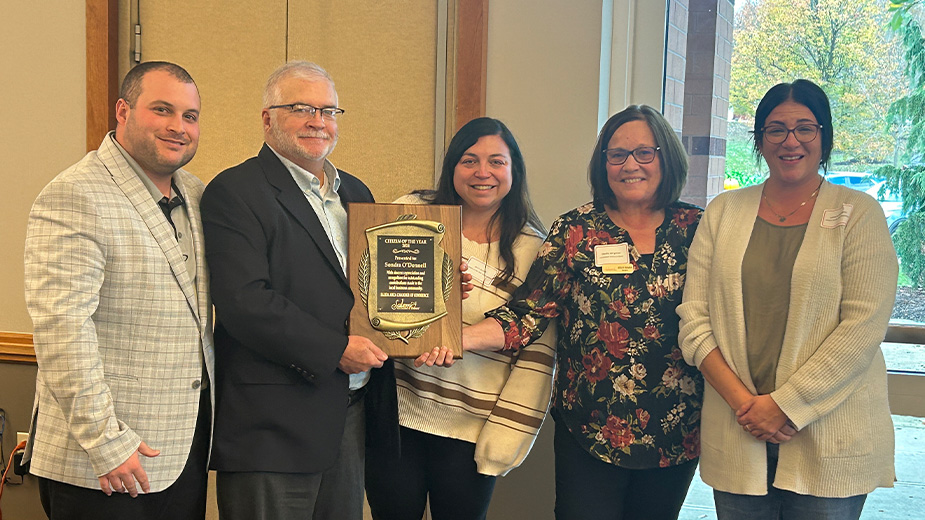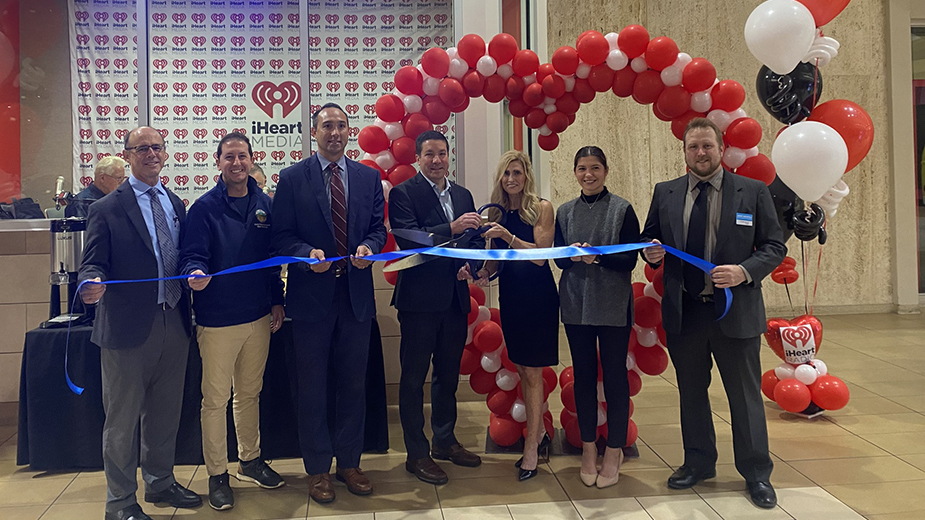Afghanistan Service Taught Green Beret How to Lead
BOARDMAN, Ohio – Since he was a boy, Lt. Col. Scott Mann dreamed of becoming a member of the Army Special Forces. He became a Green Beret and served in some of the most inhospitable parts of Iraq and Afghanistan. But the toughest enemy he met wasn’t insurgents or Taliban fighters. It was the lack of trust that pervades the societies where he fought.
Serving in societies of low trust and high conflict helped him develop what he calls “rooftop leadership.”
“I learned how to connect with people and lead people who didn’t necessarily want to follow in the beginning,” Mann said. Today, as president of Mannup Leadership Experience, he’s teaching those leadership skills to organizations that range from small businesses to Fortune 100 companies.
Mann spoke to the Youngstown-Warren Regional Chamber Wednesday on “Leading in Change.”
“How do we inspire people to follow us because they want to, not because they have to?” he asked. “That’s what I call rooftop leadership.”
In Afghanistan, Mann and his fellow soldiers needed the trust of the villagers on the front lines in the war against the Taliban but who did not trust outsiders. By the time the U.S. invaded Afghanistan in late 2001, that nation had been embroiled in one conflict after another since Alexander the Great. Afghanistan, known as “the graveyard of empires,” had thwarted the British in the 19th century and forced the Soviet Union to withdraw its forces in the late 1970s.
“In a lot of these trust-depleted villages where we had to work, it was essential for the villagers to defend themselves,” Mann said, “but they didn’t trust us. They didn’t trust each other.”
At first Mann and his fellow soldiers found themselves alone, night after night, on rooftops defending the village from the Taliban. Over time, one by one, the villagers joined the soldiers.
“Eventually the entire village would come up on the rooftops and fight along side of us to defend their entire community, not because they had to but because they chose to,” Mann said. That kind of relationship building and rooftop leadership spread to 113 villages in the worst belt of fighting in the country, he said.
Rooftop leadership isn’t just leading by example, Mann said. It’s being able to tell your story.
He explained with an anecdote about a dynamic member of the Special Forces, Jim Gant. Dubbed “Lawrence of Afghanistan” during the war, Gant worked to repair a relationship with an intransigent village elder who faced the Taliban and Al Qaeda just across the border with Pakistan.
Gant improved the relationship by apologizing for past mistakes the military had made and telling his story. He showed the elder the video footage of the attacks on 9/11, something the elder said no American had ever done, and Gant compared the elder to Sitting Bull, the Sioux chief who resisted American incursions into territory promised to his tribe by treaty in the 19th century.
Gant’s efforts helped to build trust and demonstrated American leadership to the villagers, who became potent enemies of Al Qaeda – and the example spread to other villages. Bin Laden himself targeted Gant because of his effectiveness, according to Gen. David Petraeus.
“Being able to tell a story that serves other people – where you’ve gone through struggle and you’ve learned lessons – that transcends boundaries and crosses over the trust gap,” Mann said.
Trust is elusive not just in Afghanistan but has eroded in American society and business, Mann said. “We seem to have a real problem building teams these days,” he said. “They’re [businesses are] more like working groups than teams.”
Today’s business leaders don’t just need to tell their story. They need to “leave tracks,” as the speaker put it. These are “the indelible impressions that each of us is capable of leaving behind us,” he said.
“Leaving tracks is one of the most important things we can do as leaders,” Mann said. The example of the troops on the rooftops in Afghanistan and Grant and the tribal elder are stories about leaving tracks.
“When your words, your actions and your deeds serve people you will never meet, that’s when people follow you up onto the rooftop,” the former Green Beret said.
It’s also critical for leaders to connect with their employees and those around them. “Once you’ve got that vision, the tracks that you’re here to leave, how we connect to the people around us is everything,” he said.
Mann connected with Greg Smith, chairman of Compco Industries, at an event centered on telling one’s personal story. “Scott was there, and he broke down why that’s important to a level that I’d never seen,” Smith said.
He asked Mann to conduct a seminar at Compco and became his first client. “It really brought people together,” Smith said of the experience. “When you tell a personal story that’s absolutely part of who you are, and when you share that with a co-worker, you’re connected.”
When it comes to clients and to life, it’s important to tell one personal stories and equally important to listen, Mann said in closing. “Sometimes the best stories are not the ones we tell,” he said, “but the ones we ask to hear.”
Copyright 2024 The Business Journal, Youngstown, Ohio.



